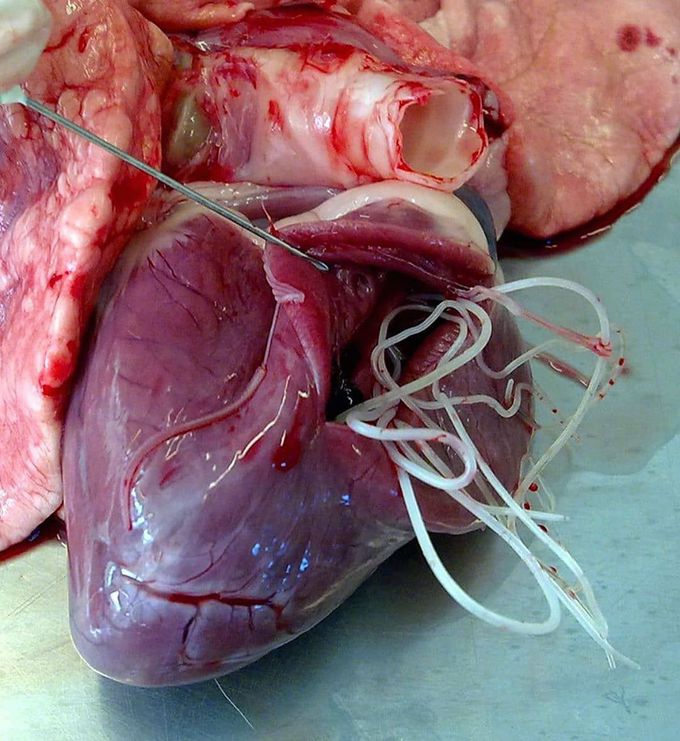


Heart worm
Moving worms in the heart! You are looking at the famous parasite known as the "Heartworm", or in more medical terms Dirofilaria Immitis. Dirofilaria are long, thin parasitic roundworms that infect a variety of mammals. Infection is transmitted by mosquito bites. There are many species of Dirofilaria, but human infection is caused most commonly by three species: D. immitis, D. repens, and D. tenuis. The most common natural hosts for these three species are dogs and wild canids, such as foxes and wolves. During a blood meal, an infected mosquito introduces third-stage filarial larvae of Dirofilaria immitis into the skin of the definitive host, which is usually a domestic dog or coyote The adult parasite that can measure up to 14 inches in length, is housed in the right heart and in the pulmonary arteries, which are the large blood vessels that connect the heart with the lungs. The blockage and damage caused by the heartworm can lead to heart failure and damage to other organs such as the liver and kidneys. The blockage in the pulmonary artery leads to an illness that includes exhaustion upon exercise, fainting, coughing up blood, and severe weight loss. In humans , D. immitis larvae tend to follow the same migratory pathway as in the canine host, ending up in the lungs, where they often lodge in small-caliber vessels, causing infarcts and typical “coin lesions” visible on radiographs.

